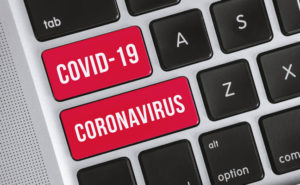Tired of those emails telling you how everyone you’ve ever had contact with is dealing with coronavirus (COVID-19)? Here is what you need to know to keep your company solvent! PCO Bookkeepers works with over 300 pest control and lawn care clients, and we’ve spoken to many of them in the last few days. We’re hearing our industry is faring better than many others. Most customers are accepting service, with many doing outside service only.
Most of us consider pest control an essential service, and there isn’t much push back by local authorities. The National Pest Management Association (NPMA) is working hard to make sure both state and federal governments recognize this. Our clients report that many people are staying home, so there are many homeowners to speak to, making new sales very strong.
That said, if the current situation persists, things can and will change. It could be an ugly spring. The need for a sound financial strategy has never been greater. Rewriting budgets at this point with a few different “what if” scenarios is prudent. In general, we don’t think it’s time to hold onto original plans for the year. It’s clear that the virus will change most every company’s plans. It’s no time to be a cowboy — that time will come later. PCO Bookkeepers’ recommendation is to work on liquidity and cost control. Companies who focus on these two things will fare better. Those that don’t will be in a world of hurt.
Here’s a look at what’s going on out there and what’s available to the industry:
Extension of tax filing, payment
The Internal Revenue Service (IRS) will allow taxpayers to defer filing and payments for 2019 tax returns until July 15, subject to certain caps. For individuals, the amount of tax that can be deferred is up to $1 million. Corporations can defer up to $10 million. These limits were selected to provide benefits to small businesses that report income through pass-through entities such as partnerships or S corporations. Taxpayers are eligible for the deferral of federal income tax payments without imposition of penalty or interest. The IRS clarifies that estimated tax payments due on July 15 are covered under this deferred payment rule.
H.R. 6201 — Families First Coronavirus Response Act – Signed into law March 18, 2020
UNEMPLOYMENT BENEFITS
Signed into law March 18, the act expands unemployment benefits through larger federal grants to the states to process and pay claims.
HEALTHCARE
The act also has several health care provisions. These include providing COVID-19 testing at no cost to the insured. This includes diagnostic testing, visits to a provider, urgent care center or emergency room. There is also a waiver of Medicare, Medicare Advantage, Medicaid and CHIP cost-sharing. In conjunction with previously issued IRS guidance, a participant in a high deductible health plan receiving this benefit would still be eligible to contribute to a Health Savings Account on a tax-advantaged basis.
PAID SICK LEAVE
This bill includes a requirement that employers with 500 or fewer employees and government employers provide emergency paid sick leave to employees due to any of the following reasons:
- To quarantine because the employee is diagnosed with COVID-19;
- To seek a diagnosis or preventive care for COVID-19;
- To comply with a recommendation or order by a public official with jurisdiction or health care provider on the basis that the physical presence of the employee would jeopardize the health of others due to exposure of the employee to COVID-19 or exhibition of symptoms by the employee; or
- To care for a family member for such purposes or to care for a child whose school has closed or childcare provider is unavailable due to the COVID-19.
Full-time employees are entitled to 10 days of sick leave and part-time employees are entitled to the typical number of hours that they work in a typical two-week period, paid at two-thirds of the employee’s regular rate.
The sick leave amount is calculated based on the employee’s “required compensation” (i.e., the largest of regular rate of pay, federal minimum wage, or local minimum wage) multiplied by the number of hours normally scheduled to work, but capped at $511 per day ($5,110 in total) and $200 per day ($2,000 in total) for other employees.
MEDICAL LEAVE
Employers with 500 or fewer employees and government employers must provide up to 12 weeks of job-protected emergency family and medical leave for a “qualifying need related to a public health emergency.”
Paid leave is calculated for an employee at an amount not less than 2/3 of the employee’s regular rate of pay (using the Fair Labor Standards Act of 1938) multiplied by the number of hours the employee would normally be scheduled to work. Under a Technical Corrections Act clarification, this amount of required paid leave cannot exceed $200 per day and $10,000 in total for an employee.
The law funds the paid sick leave and paid family and medical leave for employers (including tax-exempt employers) through a refundable credit against payroll taxes. Self-employed taxpayers can receive a benefit through a refundable credit against income taxes for periods during which work cannot be done.
Read more COVID-19 coverage here: MyPMP.net/COVID-19
You can reach GORDON, a managing member of PCO Bookkeepers and PCO M&A Specialists, at dan@pcobookkeepers.com.
The post How to keep your pest control company solvent during the coronavirus pandemic appeared first on Pest Management Professional.
from Pest Management Professional https://www.mypmp.net/2020/03/23/how-to-keep-your-pest-control-company-solvent-during-the-coronavirus-pandemic/
Sacramento CA

No comments:
Post a Comment